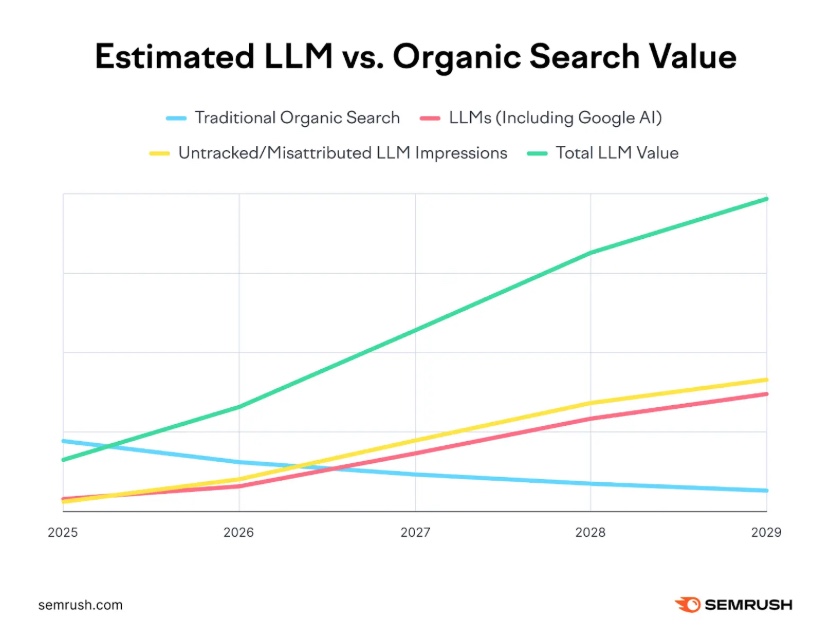When the most powerful VC firm in tech says Generative Engine Optimisation (GEO) is overtaking SEO, marketers should pay attention. A16Z’s recent piece titled ‘How Generative Engine Optimization (GEO) Rewrites the Rules of Search‘ confirms many of own thoughts: AI search is not just a trend, it’s a fundamental shift in how discovery works.
a16z Doesn’t Bet on Fads
Andreessen Horowitz doesn’t waste time writing trend pieces. When they publish a 2,000 word piece exploring GEO eclipsing SEO, it signals a seismic shift. These are the same people who spotted the mobile wave, backed Facebook before it had a revenue model, and invested early in Coinbase while regulators were still catching up.
Now they’re betting on Generative Engine Optimisation. Not as a side channel or speculative bet but as the next foundational layer of digital discovery.
GEO: What It Means and Why It’s Bigger Than You Think
GEO isn’t a buzzword. It’s about becoming discoverable, influential and quotable inside large language model (LLM) environments like ChatGPT, Claude, Perplexity, and Google AI Overviews.
After all, that’s where many B2B buyer journeys are now beginning.
Unlike SEO, which optimises for rank, GEO optimises for answers. It’s conversational, context rich, and increasingly personalised. Models don’t care about who paid for the keyword, they care about giving their users the most specific, structured, trustworthy information.
GEO Is Driving Conversions
Is ChatGPT already an attributable chaannel responsible for driving pipeline? It appears so.
Buried in the A16Z post is a stat that should make every growth leader sit up straight: 10% of Vercel signups now originate from ChatGPT recommendations.
Vercel’s CEO shared that just a month prior, that number was only 4.8%.
Our view at FirstMotion is that AI tools are not just search and discovery tools. They are buyer enablement co-pilots that sit in the decision making unit and support B2B buyers from start to finish – searching and discovery sure. But also comparing, evaluating, interrogating, analysing, negotiating – any pretty much everything else that happens in a B2B buyer journey.
Here’s another example:
And a nice piece of data from a SEMRush AI Search Traffic Study,
We have seen that the average AI search visitor (tracked to a non-Google search source like ChatGPT) is 4.4 times as valuable as the average visit from traditional organic search, based on conversion rate.

From SEO to GEO
It’s pretty clear the change is already here. Certain niches and industries may be impacted by others, but the data is evident – AI search poses both a big change, and a big opportunity (for those with a plan).
We’re heading for a world where buyers aren’t browsing your homepage – they’re prompting their assistant.
They’re not looking for your CTA. They’re looking for the best answer.
And if you’re not in the model’s context window, you’re not part of the decision.
GEO is no longer optional. It’s the front line of:
- Buyer research
- Product comparison
- Objection handling
- Feature comparisons
- Demo prep
- Onboarding planning
- Negotiation
And more…
Strategic Steps for B2B Teams
So what now? Here’s how to get ahead:
- Audit your AI search visibility: Prompt tools like ChatGPT, Perplexity and Claude. Are you mentioned? Which of your competitors are winning? Why?
- Map prompts to the buyer journey – What are buyers doing at each stage? We use data enrichment & lots of AI to supercharge this process.
- Turn those into prompt informed content briefs – map content, spot the gaps, and understand where certain prompts might be falling short.
- Optimise – from here, the plan really depends on what the data tells us. There’s no one size fits all, LLMs all work differently, each category is different and the pace of change is rapid.
Or, get in touch with us at FirstMotion, where it’s our job to help B2B software marketing leaders navigate this period of change with clarify and confidence.